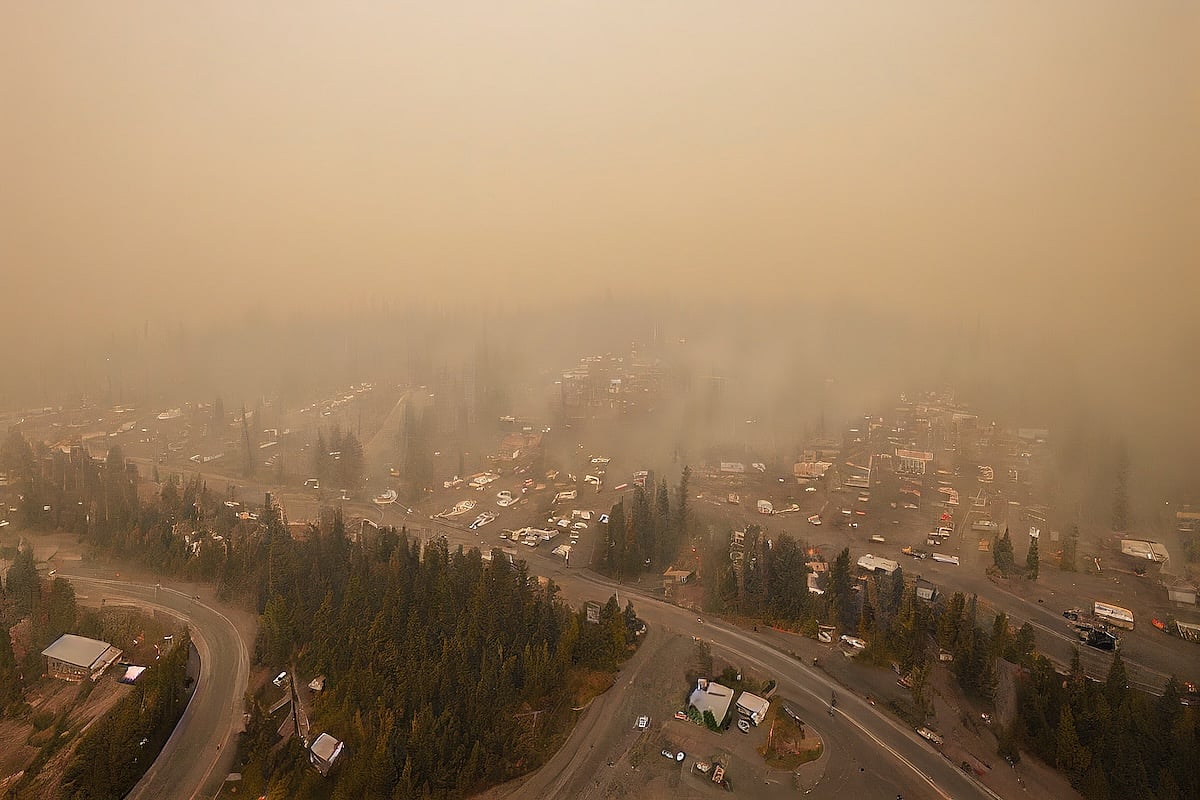Get Healthy!

- Posted October 29, 2025
Climate Change Causing More Deaths From Heat, Wildfire Smoke
Deaths from heat and air pollution have surged as climate change continues apace, a new report says.
Worldwide, the rate of heat-related deaths has risen by 23% since the 1990s, and now claim 546,000 lives each year, researchers reported today in The Lancet Countdown on Health and Climate Change.
Likewise, a record 154,000 deaths occurred due to air pollution from wildfire smoke in 2024 alone, researchers reported.
Another 2.5 million deaths a year are attributable to the air pollution created from burning of fossil fuels like gasoline and coal, researchers found.
This surge has occurred as some governments — the United States chief among them — have backtracked on their climate commitments, researchers noted.
The report “paints a bleak and undeniable picture of the devastating health harms reaching all corners of the world – with record-breaking threats to health from heat, extreme weather events and wildfire smoke killing millions,” said lead researcher Marina Romanello, executive director of the Lancet Countdown and a principal research fellow at University College London.
“The destruction to lives and livelihoods will continue to escalate until we end our fossil fuel addiction and dramatically up our game to adapt,” she said in a news release.
The year 2024 was the hottest on record, with the average person worldwide exposed to a record extra 16 health-threatening hot days due to climate change, researchers found.
In the U.S., people were exposed to an average 14 days of heat waves, of which the report said 10 would not have been expected to occur without climate change.
Americans also suffered an estimated 11,500 deaths from wildfire smoke, a 49% increase from the 2003-2012 average, according to the report.
Droughts and heat waves also meant that more people went hungry as crops failed, researchers noted. About 123 million more people experienced moderate or severe food insecurity in 2023, compared to the annual global average between 1981 and 2010.
In the U.S. alone, nearly a third (31%) of the land experienced at least one month of extreme drought per year from 2020 to 2024, a 28% increase from the weather of the 1950s, the study said.
Despite this, industry and finance continue to expand production of fossil fuels, researchers found.
The world’s 100 largest oil and gas companies have increased their projected production as of March 2025, the study noted, and the top 40 lenders to the fossil fuel sector invested a five-year high of $611 billion in 2024, up 29% from 2023.
“The stark reality is that one of the greatest threats to human prosperity comes from leaders and companies who are rolling back on climate commitments, delaying action and doubling down on fossil fuel production — meanwhile each unit of greenhouse gases emitted drives up the costs and challenges of adaptation,” researcher Nadia Ameli said in a news release. She’s a professor of climate finance at University College London.
“If we remain locked into fossil fuel dependence, health systems, cooling infrastructure, and disaster response capacities will soon be overwhelmed — putting the health and lives of the world’s 8 billion people further at risk,” Ameli said.
More information
The World Health Organization has more on climate change.
SOURCE: The Lancet, news release, Oct. 28, 2025






